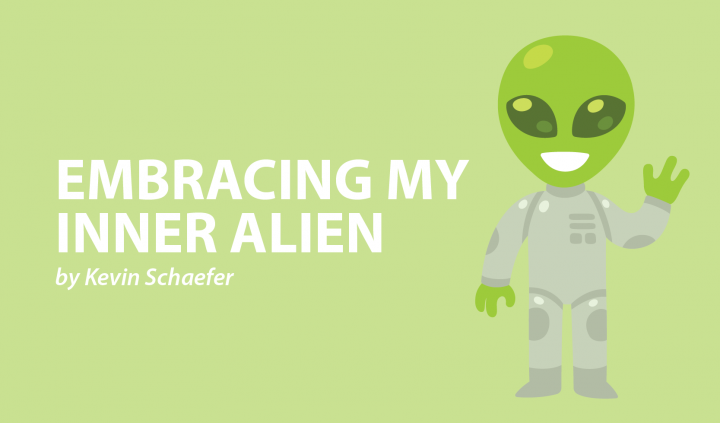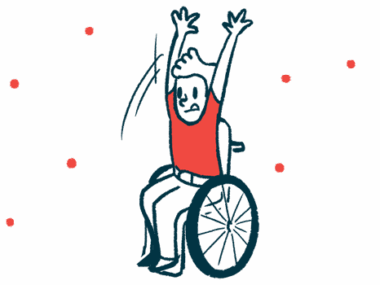The Beauty of Interacting with Strangers
Written by |

“I want to know, can you show me/ I want to know about the strangers like me.”
These lyrics from Phil Collins’ “Strangers Like Me” play during an iconic scene from Disney’s “Tarzan.” As Tarzan and Jane swing through the jungle, Collins’ hit song reflects the budding romance between these two outsiders. Listening to it really makes me wish I was in Disney World right now.
As I think about those three words, “strangers like me,” I’m reminded how it’s human nature to seek out people who are like us. We find solace in communicating with people who look, think, feel, and talk like we do.
On the flip side, we panic at the thought of meeting people who don’t look or talk like we do. No matter where we come from or how old we are, a universal anxiety can engulf us when we have to interact with strangers. As a science fiction guru, I think about how movies like “The Day the Earth Stood Still” from 1951 and “Super 8” from 2011 are about humanity’s paralyzing fear of extraterrestrials coming to our world.
Recently, I read “To Live Woke: Thoughts to Carry in Our Struggle to Save the Soul of America” by Dr. Rupert W. Nacoste. Nacoste is a professor of social psychology at my alma mater, NC State University. He writes and teaches that many of our societal problems are rooted in our anxiety about interacting with those who are different. Specifically, he coined the concept of “neo-diversity,” which points to the rapid social change we all are experiencing in the 21st century.
Nacoste’s book gave me much to reflect on, particularly as someone with a neuromuscular disability. As I look back on the numerous interactions I’ve had with strangers in my lifetime, both positive and negative, I realize how having spinal muscular atrophy has actually been the catalyst for many of these interactions.
As a person with SMA type 2, I am regularly dependent on others to compensate for my physical limitations. I depend on trained assistants to feed, bathe, and dress me, but I also rely on strangers to open doors, push buttons, or move my hands.
When I was in college, my friends often asked me how I knew “every person on campus.” True, I was a widely recognized member of the Wolfpack. Part of it had to do with my faithful canine assistant, who attracted more attention than I ever did. Another part was my irresistible charm and good looks.
Yet, beyond my extroverted personality, I often had no choice but to interact with people I’d never met. Many of my interactions began with one of these phrases:
“Excuse me, if you have a moment could you move that book on my tray?”
“Would you mind holding the door for me?”
“Hey, my hand slipped. Could you please move it to the joystick on my chair?”
Yes, I often felt anxious when I asked random students or faculty to help me with these tasks. Most of the time, people were readily willing to assist me. Nonetheless, an inevitable awkwardness comes with asking a passerby to move my hand a few inches.
Still, I adapted, particularly once I began hiring caregivers. If you think asking someone to open a door for you poses difficulty, try letting someone you just met get you dressed.
I’ve lost track of the number of people who have showered and dressed me in recent years. In some cases, I didn’t even meet the person until they arrived for their shift. I was there lying in bed, buck naked.
Being totally vulnerable in these situations is no easy feat, but it can also be incredibly rewarding. In asking others for help, I’ve had the pleasure of meeting people from all walks of life. Through these interactions with strangers and personal care assistants, I’ve met people who don’t look, act, talk, or think like me. I’ve been able to trade in comfort for these connections, and I am better for it.
As the world seems to get crazier every day, perhaps what we need is less comfort and more empathy. I’m grateful for the numerous strangers I’ve met in my life, and for the circumstances that have sparked these conversations. Living with SMA, there’s always a silver lining.
***
Note: SMA News Today is strictly a news and information website about the disease. It does not provide medical advice, diagnosis, or treatment. This content is not intended to be a substitute for professional medical advice, diagnosis, or treatment. Always seek the advice of your physician or other qualified health provider with any questions you may have regarding a medical condition. Never disregard professional medical advice or delay in seeking it because of something you have read on this website. The opinions expressed in this column are not those of SMA News Today, or its parent company, Bionews Services, and are intended to spark discussion about issues pertaining to spinal muscular atrophy.




Christine Lynch
Please continue to ask. Most people are anxious to help - if they only knew what they could do. Telling them is a gift. Thank you.